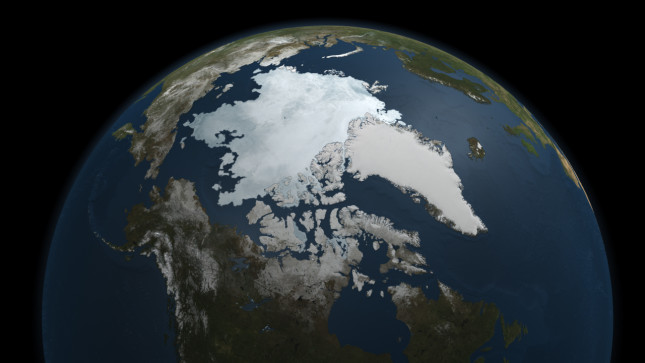-
Cruising the “7Cs” of the Arctic: A Wilson Center NOW Interview with Mike Sfraga
May 14, 2020 By Bethany Johnson
Former Vice President Biden’s recent Foreign Affairs article on his proposed presidential policies hit on all major hot spots of U.S. interest globally but one, said Mike Sfraga, director of the Wilson Center’s Global Risk and Resilience Program and Polar Institute, in a recent episode of Wilson Center NOW.
“The Arctic should be a part of the foreign policy dynamic of the United States,” said Sfraga. Global politics, economics, security, and the environment connect in countless ways throughout the region, only some of which show up in headlines.
Given its complexity and media obscurity, the Arctic can be “too big” a topic to tackle for the average person who views it as “another place on the map.” To make the region’s role in foreign policy more accessible, Sfraga developed a conceptual framework he calls the “Navigating the Arctic 7Cs.”
The framework allows people to consider the Arctic’s role in the 21st century by outlining the seven main drivers of change in the region and how they connect to critical international trends: climate; commodities; commerce; connectivity; communities; cooperation; and competition.
These “7Cs” interact in ways that are sparking renewed global interest in the region, and the United States, an Arctic nation itself, should take action, said Sfraga. The gaps in understanding between people and policies affect more than just the communities that live in the north; it affects the credibility and influence of the United States in the Arctic. “I do not know how you protect the homeland or advance the nation’s security without that kind of connectivity,” said Sfraga. Leaving the Arctic out of its foreign policy purview may jeopardize the United States’ credibility on decisions regarding the geopolitical and economic interests in the north and elsewhere.
In his article, Biden writes about an America that leads others in fighting global threats and mobilizes collective action. “If you are trying to get our globe more integrated or more stable,” said Sfraga, “the Arctic is a wonderful place to build upon.” The Arctic is one of two places that the United States and Russia regularly cooperate, in spite of the occasionally acidic relationship between the two states.
Continuing to overlook the Arctic in foreign policy is a mistake, but can be easily rectified. Understanding how to navigate the “7Cs”—the key drivers of change in the Arctic—is a first step to bringing the Arctic to the forefront of U.S. interests, where it should be. By managing the emerging interests, issues, and competition in the Arctic, cooperation can endure and spread to influence other areas of the world, said Sfraga.
Bethany Johnson is a staff intern with the Wilson Center’s Polar Institute and is currently pursuing a Master of Arts in Security Studies at Georgetown University.
Sources: Foreign Affairs.
Photo credit: Arctic sea ice on September 3, 2010, NASA Aqua Satellite.
 A Publication of the Stimson Center.
A Publication of the Stimson Center.



